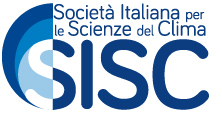EVENTS / Prof. Spano Seminar: “An overview of monitoring and modeling activities in Mediterranean ecosystems”, December 16, 2013
Climate Sciences Brown Bag Seminar “An overview of monitoring and modeling activities in Mediterranean ecosystems”
Donatella Spano, Professor of Biometerology at the University of Sassari in Sardinia (Italy) and Deputy Director, Impacts on Agriculture, Forests and Natural Ecosystems (IAFENT) Division, Euro-Mediterranean Center on Climate Change (CMCC)
Our research group has a long experience in the analysis of Mediterranean ecosystem response to actual and future environmental conditions. Fluxes of energy, water, and carbon are monitored by using the Eddy Covariance technique in typical Mediterranean ecosystems (Mediterranean maquis and vineyard) located in Sardinia (Italy). Measured data revealed that such ecosystems could be important carbon sink at annual scale with strong interannual variability mainly due to water deficit conditions occurred during the Mediterranean dry summer.
Ecosystems behavior is also investigated using a model approach. The land surface model ACASA (Advanced-Canopy-Atmosphere- Soil Algorithm), first developed by University of California (Davis) and then modified in our lab, is a multi layer model used to estimate turbulent fluxes by using third-order turbulence equations. The model parameterization was conducted for both ecosystems and the results showed the ability of ACASA to properly predict the exchanges of energy, water, and carbon between Mediterranean vegetation and the atmosphere. In addition, ACASA model was recently coupled with the meteorological mesoscale model WRF to simulate fluxes at regional scale, and it was applied over natural, agricultural, and urban ecosystems.
A special focus is also dedicated to study the impact of climate change in strategic sectors, such agriculture. The crop model DSSAT and the SIMETAW model are then used to evaluate the impact of climate change on yield and water availability over different crops, and to identify the best management practices for climate change adaptation. Some results of application at national and local scale will be presented.
NOTE: If coming from off-site, please send an email to Marilyn Saarni mesaarni@lbl.gov to arrange a gate pass. UC Berkeley staff and students can show their Cal IDs to get onto the LBNL Shuttles and enter the LBNL site. Building 84 (near the UC Berkeley Botanical Garden) is most easily accessed via the LBNL “Orange” shuttle.



